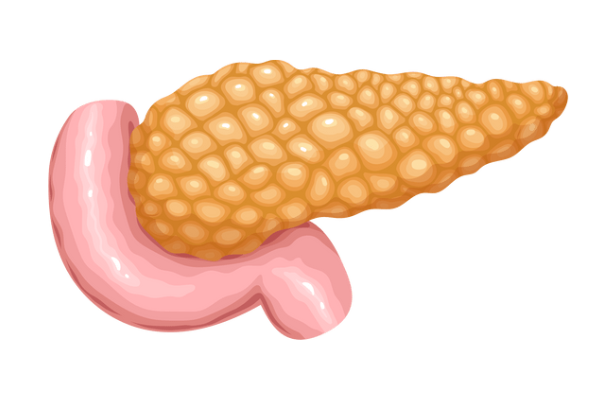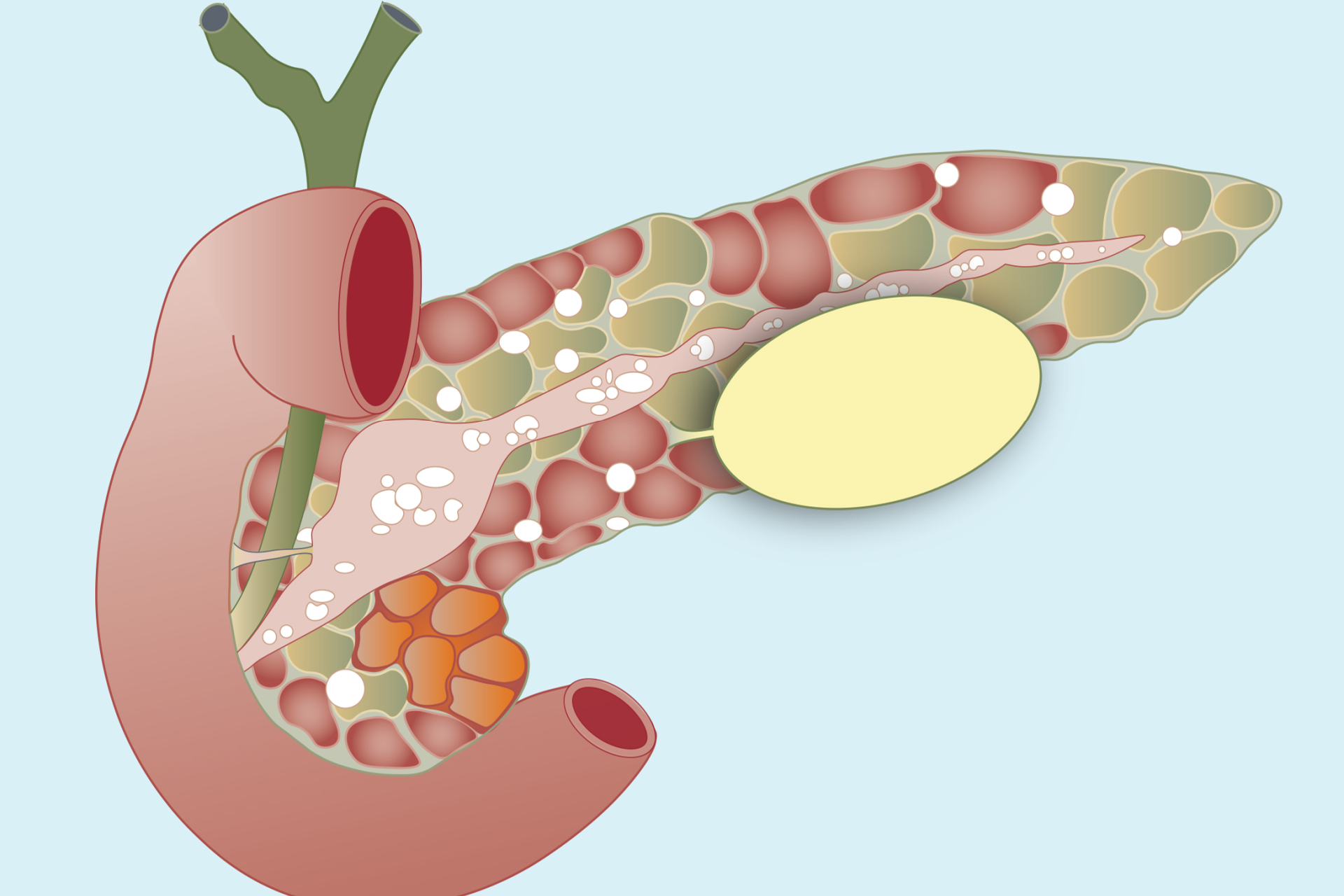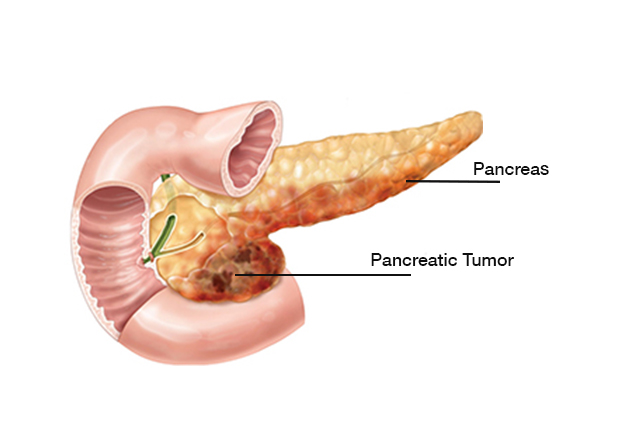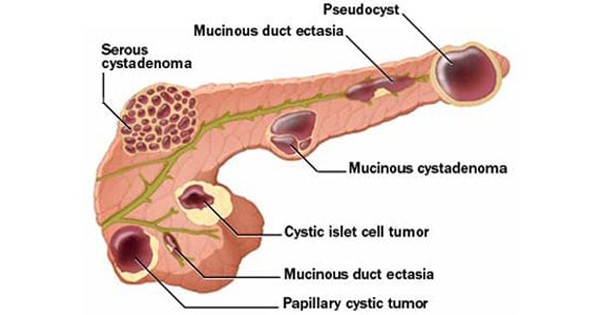
Acute pancreatitis
Acute pancreatitis is a condition where the pancreas becomes inflamed suddenly, leading to a range of symptoms. The pancreas is a gland located behind the stomach that produces enzymes and hormones that help with digestion and regulate blood sugar. When the pancreas becomes inflamed, it can cause digestive enzymes to be activated too early and begin attacking the pancreas itself, leading to tissue damage and other complications.
Symptoms
The symptoms of acute pancreatitis can range from mild to severe and can include:
- Severe abdominal pain that may radiate to the back or chest
- Nausea and vomiting
- Swollen and tender abdomen
- Fever and chills
- Rapid heartbeat
- Low blood pressure
- Jaundice (yellowing of the skin and eyes)
- In severe cases, organ failure and shock
Causes
Acute pancreatitis can be caused by a range of factors, including:
- Gallstones: One of the most common causes of acute pancreatitis is gallstones that block the pancreatic duct, which can cause inflammation.
- Alcohol: Heavy alcohol use over time can cause damage to the pancreas, leading to inflammation.
- High levels of triglycerides: High levels of fats in the blood, such as triglycerides, can cause inflammation in the pancreas.
- Infections: Infections such as mumps, hepatitis B, and other viral infections can cause acute pancreatitis.
- Certain medications: Certain medications, such as azathioprine, sulfonamides, and tetracyclines, can cause acute pancreatitis.
- Trauma: Injuries to the abdomen or pancreatic area can cause acute pancreatitis.
- Genetic factors: In rare cases, genetic factors can cause acute pancreatitis.

Diagnosis & Treatment
Diagnosis of acute pancreatitis typically involves a physical examination, blood tests, imaging tests, and sometimes a biopsy.
Treatment of acute pancreatitis depends on the severity of the inflammation and the underlying cause. In mild cases, treatment may involve resting the pancreas, managing pain and nausea, and ensuring adequate hydration. In more severe cases, hospitalization may be necessary for close monitoring and treatment of complications such as infection or organ failure.
- Pain management: Pain relief medications can be prescribed to manage the abdominal pain associated with acute pancreatitis.
- Fluids and electrolyte management: IV fluids and electrolytes may be administered to prevent dehydration and maintain normal organ function.
- Nutritional support: In severe cases, a feeding tube may be inserted to provide nutrition while the pancreas heals.
- Treatment of underlying cause: If the underlying cause of acute pancreatitis is identified, such as gallstones or alcohol abuse, treatment will focus on addressing that underlying condition.
In some cases, surgery may be necessary to remove damaged tissue or to drain fluid from the pancreas.
What to expect after treatment
During the recovery period, it is important to follow any dietary and lifestyle changes recommended by your doctor to prevent future episodes of acute pancreatitis. This may include:
- Avoiding alcohol: If alcohol was the cause of your acute pancreatitis, it is important to avoid alcohol consumption to prevent further damage to the pancreas.
- Eating a low-fat diet: Eating a diet that is low in fat can help prevent future episodes of acute pancreatitis.
- Staying hydrated: Drinking plenty of fluids, especially water, can help prevent dehydration and support normal organ function.
- Following up with your doctor: Follow-up appointments with your doctor may be necessary to monitor your recovery and check for any complications or underlying conditions that may require additional treatment.
- Endoscopic interventions :
- Pancreatic duct stenting in case of ductal calculi or stricture or duct leak
- Pancreatic necrosectomy after 4 weeks of attack in case of progressive disease or infected necrosis
- EUS guided cysto gastrostomy after 4-6 weeks of pseudocyst formation
- some cases, complications such as infection or organ failure may occur during the recovery period, requiring additional treatment and monitoring. With prompt medical attention and proper management, most people with acute pancreatitis are able to recover fully and resume their normal activities.

Chronic pancreatitis
Chronic pancreatitis is a long-term inflammation of the pancreas, which is a gland located behind the stomach that produces digestive enzymes and hormones that regulate blood sugar.
Symptoms
some common symptoms of chronic pancreatitis include:
- Abdominal pain
- Digestive problems
- Weight loss
- Diabetes
- Jaundice
- Back pain
Causes
The most common cause is heavy alcohol consumption, which can lead to repeated episodes of acute pancreatitis and eventually chronic inflammation of the pancreas Other causes of chronic pancreatitis include:
- Genetics
- Autoimmune disease
- Blockage of the pancreatic ducts
- High levels of triglycerides in the blood
- Cystic fibrosis

Diagnosis & Treatment
Diagnosis of chronic pancreatitis usually involves a combination of medical history, physical examination, imaging tests, and blood tests
Treatment of chronic pancreatitis depends on the underlying cause and the severity of the condition. The goals of treatment are to relieve symptoms, prevent complications, and improve quality of life.
Treatment options may include:
- Pain management: Pain medication may be prescribed to manage abdominal pain.
- Enzyme replacement therapy: Enzyme supplements can be taken orally to help with digestion and prevent malnutrition.
- Lifestyle changes: Dietary changes such as reducing fat intake and avoiding alcohol may be recommended to reduce inflammation and prevent further damage to the pancreas.
- Surgery: In some cases, surgery may be necessary to remove blockages in the pancreatic ducts or to remove part of the pancreas that is causing pain.
- Management of complications: Treatment for complications such as diabetes or malnutrition may also be necessary.
What to expect after treatment
With proper treatment and management, many people with chronic pancreatitis are able to live relatively normal lives. However, it's important to keep in mind that chronic pancreatitis is a chronic condition that requires ongoing monitoring and management.
possible outcomes after treatment of chronic pancreatitis may include:
1.With proper treatment, many people with chronic pancreatitis are able to manage their pain and enjoy a better quality of life.
2.Enzyme supplements and dietary changes can help improve digestive function and prevent malnutrition.
3.If diabetes develops as a result of chronic pancreatitis, it can be managed with medication, dietary changes, and regular monitoring of blood sugar levels.
4.With ongoing monitoring and management, complications such as pancreatic cancer or malnutrition can be prevented.
ENDOSCOPIC INTERVENTIONS IN CHRONIC PANCREATITIS
Pain: EUS guided celiac plexus block or neurolysis
PD calculi or stricture : ERCP PD stenting of duct Pancreatic necrosectomy with LAMS in case of necrotising collection

Pancreatic cancer
Pancreatic cancer is a type of cancer that occurs when abnormal cells in the pancreas grow out of control and form a mass or tumor. The pancreas is a gland located behind the stomach that plays an important role in digestion and the regulation of blood sugar.
Pancreatic cancer can be either exocrine or endocrine, depending on the type of cells that are affected. The vast majority of pancreatic cancers (about 95%) are exocrine tumors, which develop in the cells that produce digestive enzymes.
Symptoms
The symptoms of pancreatic cancer can vary depending on the location of the tumor and whether it has spread to other parts of the bodySome of the common symptoms of pancreatic cancer include:
- Jaundice
- Abdominal pain
- Unexplained weight loss
- Nausea and vomiting
- Fatigue
- New-onset diabetes
Causes
The causes of Pancreatic cancer include:
- Age: The risk of pancreatic cancer increases with age, with most cases occurring in people over the age of 65.
- Smoking: Smoking is one of the most significant risk factors for pancreatic cancer, as it can damage the DNA in the cells of the pancreas.
- Obesity: Being overweight or obese can increase the risk of developing pancreatic cancer, possibly due to the increased levels of insulin and inflammation associated with obesity.
- Chronic pancreatitis: Long-term inflammation of the pancreas, known as chronic pancreatitis, can increase the risk of developing pancreatic cancer.
- Family history: A family history of pancreatic cancer or certain genetic syndromes such as BRCA2 mutations, Lynch syndrome, or familial atypical mole-malignant melanoma (FAMMM) syndrome can increase the risk of developing pancreatic cancer.
- Diabetes: People with diabetes have an increased risk of developing pancreatic cancer, although it is unclear whether the diabetes itself or other factors associated with diabetes are responsible for this increased risk.

Diagnosis & Treatment
Diagnosis of pancreatic cancer typically involves a combination of:
- CT scan or MRI: These tests use specialized X-ray equipment or magnetic fields and radio waves to create detailed images of the pancreas and other organs.
- Endoscopic ultrasound: This test involves inserting an ultrasound probe into the digestive tract to create detailed images of the pancreas and surrounding structures.
- Biopsy: A sample of tissue from the pancreas may be removed and examined under a microscope to confirm the diagnosis of pancreatic cancer.
Once a diagnosis of pancreatic cancer has been made, treatment options may include:
- Surgery: Surgical removal of the tumor is often the best option for curing pancreatic cancer, although not all tumors can be surgically removed.
- Chemotherapy: Chemotherapy involves the use of drugs to kill cancer cells throughout the body, and may be used before or after surgery.
- Radiation therapy: Radiation therapy uses high-energy X-rays or other types of radiation to kill cancer cells, and may be used before or after surgery or as a standalone treatment for advanced pancreatic cancer.
- Targeted therapy: Targeted therapies are drugs that target specific proteins or pathways that are involved in the growth and spread of cancer cells.
The choice of treatment will depend on a variety of factors, including the stage of the cancer, the location of the tumor, and the overall health of the patient.
What to expect after treatment
The outlook for people with pancreatic cancer depends on several factors, including the stage and location of the cancer, the type of treatment received, and the overall health of the patientAfter treatment for pancreatic cancer, the patient will typically be monitored closely for signs of recurrence or complications. This may involve regular imaging tests such as CT scans or MRIs, blood tests to check for tumor markers or other indicators of cancer, and physical exams.
If the cancer has been successfully treated, the patient may be able to resume normal activities and return to work or other daily routines. However, some patients may experience lingering side effects from treatment, such as fatigue, digestive issues, or neuropathy.
In cases where the cancer has advanced or has spread to other parts of the body, the prognosis may be less favorable, and the patient may require ongoing treatment and supportive care to manage symptoms and improve quality of life.
Making healthy lifestyle choices, such as maintaining a healthy diet, staying physically active, and avoiding tobacco and excessive alcohol consumption, can also help improve outcomes and reduce the risk of cancer recurrence.

Pseudo Cysts
Pancreatic pseudocysts are fluid-filled sacs that develop in or near the pancreas as a result of inflammation or injury. Unlike true cysts, which are lined with epithelial cells and contain fluid or semisolid material, pseudocysts are made up of a fibrous wall that encloses pancreatic enzymes, blood, and other fluids.
Symptoms
larger or symptomatic pseudocysts may cause the following symptoms:
- Abdominal pain
- Palpable mass or lump in the abdomen
- Jaundice
- Fever
- Diarrhea, weight loss, and weakness.
Causes
Pseudocysts can develop after an episode of acute pancreatitis, which is a sudden inflammation of the pancreas that can cause abdominal pain, nausea, and vomiting. They may also occur as a complication of chronic pancreatitis, pancreatic trauma, or pancreatic cancer.

Diagnosis & Treatment
Diagnosis of pancreatic pseudocysts typically involves a combination of imaging tests, such as CT scans or ultrasound, and clinical evaluation of symptoms and medical history. In some cases, a fine needle aspiration (FNA) or biopsy may be performed to rule out other conditions, such as pancreatic cancer.
Treatment for pancreatic pseudocysts depends on several factors, including the size and location of the cyst, the severity of symptoms, and the patient's overall health.
For larger or symptomatic pseudocysts, treatment options may include:
- Drainage: This involves inserting a needle or catheter into the cyst and draining the fluid. This procedure may be performed using ultrasound or CT guidance, and may be done on an outpatient basis. In some cases, a stent may be placed to help keep the cyst open and allow continued drainage.
- Surgery: Surgical removal of the pseudocyst may be recommended if it is large or causing complications, such as infection or obstruction of nearby organs. The type of surgery performed will depend on the size and location of the cyst, as well as the patient's overall health and other medical conditions.
- Endoscopic treatment: This involves inserting an endoscope into the stomach or small intestine and using specialized tools to drain the cyst or remove any blockages or debris. Endoscopic treatment may be recommended for pseudocysts that are located near the stomach or duodenum.
In some cases, a combination of these treatments may be recommended to manage the pseudocyst and reduce the risk of complications
What to expect after treatment
After treatment for a pancreatic pseudocyst, the patient will typically be monitored closely If the cyst was drained using a needle or catheter, the patient may need to return for additional drainage procedures, especially if the cyst is large or if fluid continues to accumulate.If the patient underwent surgery to remove the cyst, they will likely require a hospital stay for several days or longer, depending on the extent of the surgery and the patient's recovery. After surgery, the patient will need to follow a specific diet and medication and will need to avoid strenuous physical activity until they have fully recovered.to ensure that the cyst does not recur or cause any further complications
In some cases, endoscopic treatment may be used to manage the cyst. The patient may need to undergo periodic endoscopy procedures to ensure that the cyst is properly drained and to monitor for any signs of recurrence or other complications.
Overall, the prognosis for pancreatic pseudocysts is generally good with appropriate treatment. However, in some cases, complications may arise, such as infection, rupture, or obstruction of nearby organs. Patients with pancreatic pseudocysts should closely follow the recommendations for follow-up care and monitoring to reduce the risk of complications and ensure the best possible outcome.
